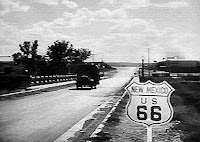 Bloomberg
Bloomberg
California May Pay With IOUs for Second Time Since Depression
By Michael B. Marois and William Selway
Dec. 5 (Bloomberg) -- California, the world’s eighth largest economy, may pay vendors with IOUs for only the second time since the Great Depression, State Finance Director Mike Genest said.
In a letter to legislative leaders Dec. 2, Genest said the state “will begin delaying payments or paying in registered warrants in March” unless an $11.2 billion deficit is closed or reduced. California, which approved its budget less than three months ago, may run out of cash by March, state officials say.
Governor Arnold Schwarzenegger warned that he may issue the warrants, which are a promise to pay with interest, to suppliers and contractors as the seizure in credit markets may make it too costly to borrow.  “It’s getting worse very quickly,” Schwarzenegger, a 61- year-old Republican, told reporters Dec. 1 after declaring a fiscal emergency and ordering the Legislature into a special session to find ways to close the deficit. “It’s like an avalanche in that it gains momentum. And that’s what we’re in right now, so it’s a real crisis.”
“It’s getting worse very quickly,” Schwarzenegger, a 61- year-old Republican, told reporters Dec. 1 after declaring a fiscal emergency and ordering the Legislature into a special session to find ways to close the deficit. “It’s like an avalanche in that it gains momentum. And that’s what we’re in right now, so it’s a real crisis.”
California is reeling more than any other state from budget woes that pushed the nation’s governors to seek help from Congress. States say federal money is needed to ease the pain from spending cuts and tax increases that would be a further blow to an economy in the throes of a recession.
The warrants would be given to landscapers, carpet cleaners, construction firms, food services companies and other state vendors. They would pay an interest rate of as much as 5 percent, based on state law. California last issued the IOUs in 1992 when lawmakers and then-Governor Pete Wilson deadlocked on a budget for 61 days past the start of the fiscal year...

"All the world marveled at this, and gave their allegiance to the Beast. And they worshiped the serpent, for giving such power to him, as they also worshiped the Beast. 'Who is as great as the Beast?' they exclaimed. 'And who is able to resist him?' And the Beast was allowed to commit great blasphemies against God."
Revelation 13:3-5